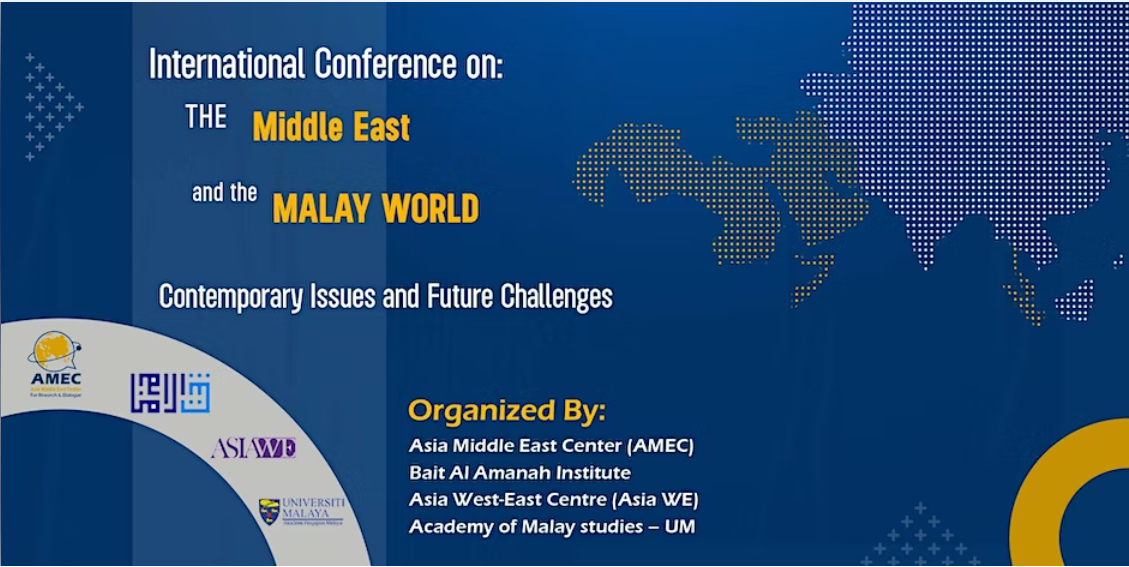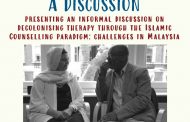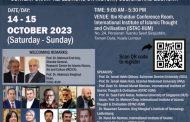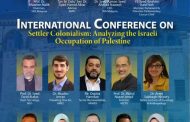Nowadays, culture and civilization are among the most important factors defining the nations in our world. Whenever a nation wanted to rebuild itself, inevitably it returned to these premises. Muslim countries did not stay away from resorting to this method in the continuous historical process of the rise and fall of civilizations.
Throughout our history, there were many cases of the rise of civilizations that eventually reached a state of decline. Although Muslim societies went through the whole process from birth to decline, they reappear again in the quest for revival.
The development of Muslim civilization in various regions of the world is an amazing process that continues to attract the attention of many researchers. Its origins can be considered a complex and inimitable phenomenon that, along with its rapid growth, was able to offer humanity some guidance.
Indeed, the Muslim world can be compared to the carpet that, with all its diversity of colors and geometrical patterns, symbolizes unity. It is possible to witness this unity when all the patterns are analyzed in a composition next to each other. Following this logic, it can be seen that the Muslim world has a mesmerizing diversity of cultures, languages, ethnicities, and religious sects, and yet it cannot be looked at without the lense of unity, disregarding the sectarianism that may seem to tear it apart, because it has a uniting unchangeable principle that lies in the religion and has no substitute.
If to distinguish the model Muslim nations may adhere to based on where they inherited Islam, it can be roughly divided into Arabic, Turkic, Iranian, Malay, and African.
While there is only one Islam in the world, there is its great plurality, when viewed within the national, cultural, and linguistic frameworks. Domains of Arabic, Persian, Turkic, African, and Indian culture, and the culture of the Malay world make up the civilizational block of the Muslim world.
Middle East Countries played a significant role in the spread of Islam in Central Asia, the Indian subcontinent, and East Asia from China to Malaysia and Indonesia. Arab and Iranian traders, Indian Sufis introduced Islam to Southeast Asia in the 13th century.
The regional cultural abode of Islam consists of Indonesia, Malaysia, Brunei, and Malay-speaking minorities in South Thailand and the Philippines which altogether account for 250 million people.
If to look for the political factors that helped to shape Muslim civilization, the Arab language that spread all over the Muslim lands, was one of them, and after that, it gave its place to Persian and Turkish.
Islamic Culture as a driver of spreading Islam in Iran itself, Central Asia, and the Indian subcontinent also became widely spoken in various dialects at that time. As a result, the role of Arabic was reduced to the performance of solat and other prayers.
Islam’s influence is noticeable through the Malay language (which served as a lingua franka for the Muslims of Indonesia and Malaysia), as well as the Thai language (from the 16th century and Ayutthaya time).
Quite a lot of research was made on the Iranian influence in the Malay and Chinese world before the advent of Islam, but there was no consolidated work touching on all the aspects of their complexity.
The role of Middle East countries including Arab countries and Iran and Turkish in the spread of Islam among the people in this region is also of interest and issue for disputes among the researchers.
Therefore, based on the outlined matters of interest, it is suggested to organize a Two-day International Conference on “The Middle East and Malay world: Contemporary Issues and Future Challenges” with a focus on History, Politics, Culture, and Finance, among the categories to be presented at the Conference.
The structure of the conference is planned on the following three panels
- The Malay Archipelago in the Muslim World: Relations with the Middle East
- The Malay World and the World Powers: The United States and China
- Malaysia and Indonesia on Palestine
Tentative Program
- 08:00-09:00 Guest arrival
- 09:00-09:15: Opening speech by Emcee : Haniss Haidi – Bait Al Amanah Institute
- 09:20 – 09:30 Welcoming Speech by Prof Mohd Hamdi Abd Shukor -Vice-chancellor University Malaya –
Dr Abdul Razak – chairman Bait Al Amanah Institute
- 09:35 – 10:10 Keynote Speech by Honorable Dato’ Sri Saifuddin Abdullah – Minister of Foreign Affairs of Malaysia
- 10:15 – 1030: Launching of Asia Middle East Center for Research and Dialogue:
Short speech by Mr Muslim Imran – Director of AMEC
Launching by AMEC Advisor Tan Sri Dr. Syed Hamed Albar,
Foreign Minister Dato’ Sri Saifuddin Abdullah, and other VIPs
Session I: The Malay Archipelago in the Muslim World:
Relations with the Middle East
Moderator: Nabila Ismail – Bait Al Amanah
- 10:30 – 10:45: Speaker I: Prof. Dr. Ahmad Fauzi Abdulhamid – University of Science Malaysia (USM)
Title: Malaysian Islamists’ Responses to the August 2021 Taliban Takeover of Afghanistan
- 10:45 – 11:00: Speaker II: Dr. Asif Shuja –The Middle East Institute, National University of Singapore (NUS), Singapore
Title: “Malay World’s Navigation in the Changing Dynamics of the Islamic World”
11:00 – 11:15: Speaker III: Assoc. Prof Mehmet Ozay. (ISTAC-IIUM)
Title: “Narration or Fictionalization of Historical Relations: The responsibility of Historians”
- 11:15 – 11:30: SpeakerIIII: Dato Ku Jaafar Ku Shaari– Chairman of Socio-Economic Development Council for D8
Title: Middle East Malay World Thousand Years’ Relations.
- 11:30 – 11:45 : Speakers V: Awang Azman Awang Pawi – Academy of Malay Studies, University of Malaya
Title: The Role of Acheh and Turkey in Relation to Islamic Intellectualism in the Malay World
1145 – 12:20 Q & A
Session II:
The Malay World and the World Powers: The United States and China
Moderator: Sohil Marjani -Asia WE
- 12:20 – 12:35 Speakers I: YB Liew Chin Tong – Former Deputy Defense Minister of Malaysia
Title:
- 12:35 – 12:50 Speaker II : Hoo Chiew Ping, Senior Lecturer – SSIR- UKM
Title: The Malay World in East Asia
- 12:50-13:05 Speaker III: Chandra Muzafar – International Movement for a Just World (JUST)
Title: The Malay World and China: past, present, and future ties
- 13:05 – 13:20 Speaker IIII: Prof. Dr. K.S. Nathan- ukm Malaysia
Title: Malaysia’s Relations with the United States and China: Examining Convergence and Divergence of Interests in a Trilateral Framework
- 13:20 – 13:45 Q & A
- 13:45 – 14:30 Lunch Break
Session III: Malaysia and Indonesia on Palestine
Moderator: Mr. Muslim Imran – Asia Middle East Center (AMEC)
- 14:30 – 14:45 Speakers I: Dr. Mohd Nazari Bin Ismail – Hashim Sani Center for Palestine Studies, University of Malaya
Title:
- 14:45 – 15:00 Speaker II:Olsi Jasexhi – International Islamic University Malaysia
Title: Israel’s belligerence against Palestine: from the Balkans to Nusantara
15:00 – 15:15 Speaker III: Asep Setiawan – Universitas Muhammadiyah Jakarta (UMJ), Indonesia
Title: Palestine, Indonesia and Struggle Against Colonialism
15:15 – 15:30 Speaker IIII: Dr Fawziah Hasan –
Title:
- 15:30 – 16:00 Q & A
Session IV
Closing Ceremony by
- 16:00 – 16:30 Keynote Speech
- 16:30 – 16:45 Souvenirs and Photo Session
- 16:45 – 17:00 Closing Remarks by Emcee









